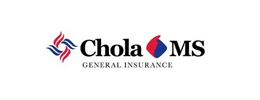Last updated on: September 19, 2025
Understanding health insurance can be really tricky, especially since there’s not just one kind. Many people get confused about how many types there actually are and what each one covers. The featured content ‘How many Types of Health Insurance’ makes it easy to understand by breaking down the different types simply and clearly. It highlights which types of insurance fit different needs, and gives an idea of how each one helps with things like doctor visits, hospital stays, and prescription medicines. These clear explanations help you make smart choices about which insurance might be best for you and your family.
The various forms of health insurance are an issue that is extremely significant to understand in 2025. As medical expenses are increasing, and health requirements are evolving, every individual and family ought to make a selection of the suitable health insurance policy. Health insurance is not limited to the case of hospitalisation only. All the broad and narrow types of health insurance plans offered in India and the selection process of the appropriate best health insurance plan will be explained here.
Health insurance is an agreement between you and the insuring company. You end up paying a premium, and the insurer shall cover all or part of your medical bills, which depend on the policy. Hospitalisation costs, operational theatre, extracurricular procedures, OPD, medications, preventive health checks comprise some of these costs in India.
Health insurance plans in India are of many kinds and cater to specific requirements. There are typically these principal categories:
Now let us survey them one by one.
Such a plan is able to cover only an individual, normally the policy holder. The benefits and the sum insured are of one person.
A family floater policy covers your entire family (spouse, children, sometimes parents) under one sum insured. Each member is allowed to spend the sum insured at will, any times until the limit is spent.
Expert insight: “Family floater covers are cost effective for families with younger members, but once parents age, separate senior citizen plans are often advisable,” says Anika Singh, a health insurance advisor in Mumbai.
These are tailored specially to the individuals more than 60 years. These policies have increased coverage and are unique than others because health issues increase with age.
Example: most of the major insurers are offering special schemes such as senior citizens plans with higher sum insured amounts and network of cashless hospitals such as Star Health and HDFC Ergo.
A standalone plan, critical illness cover, is the one that is paid on the occurrence of a major illness in the form of a lump sum. It is not insured in case of everyday medical visits and hospitalisation without a critical illness.
Did you know?: Today, some of the firms include more than 50 serious illnesses in coverage compared to only 10 conditions two decades ago.
Organisations, societies or companies take up a group health cover on their employees. People cannot purchase it directly.
With rising cost of healthcare, bare policy might be insufficient. Super top up or top up insurance serves as a backup to the regular policy when it can no longer work.
| FEATURE | Top Up | Super Top Up |
|---|---|---|
| What it includes | One big bill on top of base | More than one bill that tops basis |
| Usage | When the deductible is met | When the total claims that happen annually are met |
| Who should buy it | Individuals with simple corporate plan | Individuals with high claim history |
Example: In case of a simple five lakh policy, one can purchase a ten lakh top up policy. When your hospital bill is more than five lakhs, the top up plan pays additional bill.
Certain insurers are also providing disease specific covers such as diabetes cover, cancer cover or heart care cover. They suit best individuals, who have been diagnosed with some chronic diseases.
Maternity Insurance is a policy that helps to cover the cost of pregnancy, childbirth and upkeep of the newborn child within a given duration of time. There are some strategies that cover IVF treatment as well.
Did you know?: The maternity limit has also increased in the recent years in some of the corporate policies to above Rs 1.5 lakhs as compared to earlier maternity limit of Rs 50,000.
Personal accident cover will cover you against losing money in case you get in to an accident and either get injured, disabled, or even die.
OPD and day care covers provide you with benefits when it comes to less serious treatments and procedures that do not necessitate normal admission in a hospital.
Expert insight: “Daycare and OPD covers are game changers for Indian customers, especially for families dealing with frequent, smaller medical expenses,” shares Dr Nitin Maheshwari, General Physician, Pune.
Special plans that were introduced during the pandemic included Corona Kavach and Corona Rakshak. By 2025, with the potential of the pandemic much lower, there is an updated cover which is a communicable disease cover that covers the risk of hospital bills caused by a new or potential future pandemic.
The choice of the most appropriate policy will be based on your age, health condition, family structure, and budget. Here this is:
| Type of plan | Who Is This Plan Targeted At | Sum Insured Rate | Special Availability |
|---|---|---|---|
| Personal | Single, retired people | 1 lakh to 1 crore | 1 individual coverage, which is comprehensive |
| Family floater | Couples, nuclear families | 1 lakh to 30 lakh | Shared sum insured |
| Senior citizen | 60 years and above age category | 1 lakh to 25 lakh | Protects age related diseases |
| Critical illness | Anyone having family history | 1 lakh to 75 lakh | One time lump sum payout |
| Group health | Employers, societies | 1 lakh to 20 lakh | Immediate cover, low premium |
| Top up,super top up | A combination of all with base cover | 10-50 lakh after threshold | Bills after Threshold |
| Disease specific | Diabetes, cancer patients | 1 lakh to 10 lakh | Specific benefits |
| Maternity | Cases of pregnant women | 1 lakh to 5 lakh | Pregnancy and infant care |
| OPD, daycare | Families, elderly | 10,000 to 50,000 | Non hospitalisation cost |
| Personal accident | All earning members | 5 lakh to 1 crore | Accidental death disability |
The difference between the individual policy and the floater plan is that individual policy covers a fixed sum insured on a person whereas a lump sum insured is shared among all members of the family being covered under the floater plan.
No, it is not compulsory. It is however advisable where you or you people have history of major diseases.
Yes, many modern policies include AYUSH (Ayurveda, Yoga, Unani, Siddha, Homeopathy) treatment cover up to a specified limit.
Did you know?: By 2025, more than 80 per cent of the Indian health insurance policies will be cashless treatment, with or without loss to both types of city: urban and tier two or three. This will help every claimant.
Some types of health insurance available in India include individual, family floater, senior citizen, critical illness as well as group covers, topup, disease-specific, maternity, accident, OPD, and pandemic covers. Each of them is distinct. Choose and compare the appropriate plan fitting your family and you, concerning needs and budget. Also, do not forget to make sure that the new updates are not forgotten and apply online using such visible websites as fincover.com.
What is the most appropriate type of health insurance in India, when there is such a family as four?
The most suitable is a family floater plan where all members are under one column of insurance.
Am I able to be covered by group health insurance and individual insurance?
It is true that double protection and flexibility in settling claims are envisaged by the combination of both.
In the second tier towns is health insurance cashless?
Yes, cashless tie ups by majority of insurers in hospitals in small cities also exist.
Is there a waiting period in maternity health covers?
normally yes, up to 3 years in some case it is 9 months, dependent on the policy.
Do my preexisting diseases require my immediate coverage?
Preexisting conditions usually have a 1 year to 4 years waiting period in most plans. This can be waived in some group covers.
What is the best way to even obtain the lowest premium on health insurance in 2025?
Take up a policy even when you lighten buy a larger deductible and compare policy at fincover.com to take up an offer.
This manual will make you comprehend all types of health insurance which are provided in India in 2025 and you will simply be able to decide what will suit you and your family the best.












How could we improve this article?
Written by Prem Anand, a content writer with over 10+ years of experience in the Banking, Financial Services, and Insurance sectors.
Prem Anand is a seasoned content writer with over 10+ years of experience in the Banking, Financial Services, and Insurance sectors. He has a strong command of industry-specific language and compliance regulations. He specializes in writing insightful blog posts, detailed articles, and content that educates and engages the Indian audience.
The content is prepared by thoroughly researching multiple trustworthy sources such as official websites, financial portals, customer reviews, policy documents and IRDAI guidelines. The goal is to bring accurate and reader-friendly insights.
This content is created to help readers make informed decisions. It aims to simplify complex insurance and finance topics so that you can understand your options clearly and take the right steps with confidence. Every article is written keeping transparency, clarity, and trust in mind.
Based on Google's Helpful Content System, this article emphasizes user value, transparency, and accuracy. It incorporates principles of E-E-A-T (Experience, Expertise, Authoritativeness, Trustworthiness).